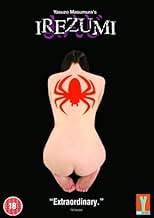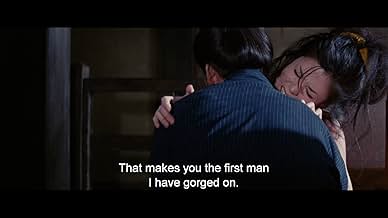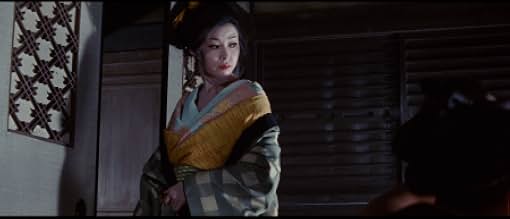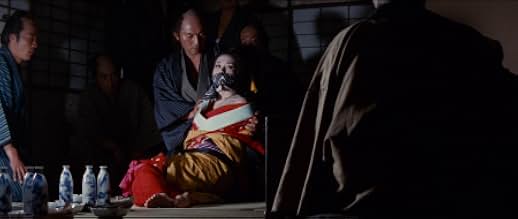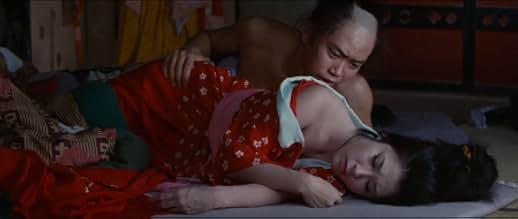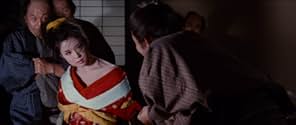"Irezumi" (which means "tattoo" in Japanese) is an erotic costume film from one of the bad boys of '60s Japanese cinema. Director Masumura used a full palette of primary colors (with very vivid reds) to tell us about the story of Otsuya, a beautiful young woman from a middle-class merchant family who is abducted into geisha work, and who catches one day the eye of Seikichi, a tattoo master who marks her back with a huge, monstrous spider. From that moment on, Otsuya will take her revenge with every man who shared her bed.
If you have an appetite for perverse stories, try this one. To play Otsuya, Masumura used beautiful actress Ayako Wakao, best remembered in the West for her part in Mizoguchi's "Street of Shame" (1956), where she was Yasumi, the cold-hearted and money-greedy prostitute. She inspired Masumura throughout the '60s, and "Irezumi" is one of their best collaborations. Adapted to the screen by Kaneto Shindo (the internationally acclaimed director of "The Naked Island" and "Onibaba"), the script goes far beyond Junichiro Tanizaki's original short story. In Tanizaki's work, a sadistic tattoo artist searches for his ultimate canvas, a beautiful girl, to create his masterpiece. The girl is innocent until the tattooer finishes "pouring his soul" into her tattoo, which represents a huge tarantula (it is better to know that "tarantula" in Japanese is "jorôgumo" and "jorô" stands for "prostitute", as both attract men to suck their blood). She becomes thus the "femme fatale" of his dreams. In "Irezumi", we never know if Otsuya is evil by nature or if the tattoo is the cause of her misconduct and bad manners, and that's the most fascinating aspect of the film. As it is a "pinku eiga" of the '60s, don't expect graphic sexual scenes but highly suggestive shots (which are more than enough) and enjoy this shameless film. As for me, I still haven't decided yet whether it is a misogynous film or its complete opposite. And what about the spider? It's a... uh, very special piece of art.

